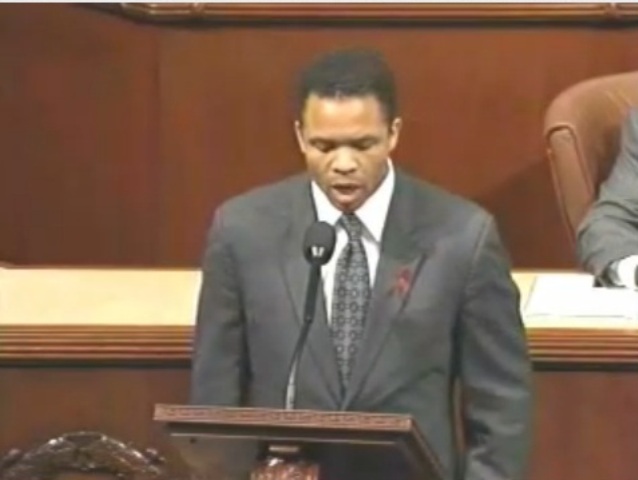Latest Statement From Jesse Jackson Jr.'s Office Raises More Questions
By Chuck Sudo in News on Jul 12, 2012 2:00PM

Like clues in a treasure hunt, the latest press release from Rep. Jesse Jackson Jr.'s office regarding the reason for his month-long (and counting) leave of absence from Congress came with conflicting reports, denials from the congressman's spokespeople, and a strong denial and admonishment from his family that Jackson be allowed to recuperate in peace.
Given the way Jackson's office has bungled the handling of this since the original announcement, it's probably too late for that. Their succession of cryptic statements and the increasing media spotlight that comes with each only overshadows what is a serious situation for the congressman.
The statement released by Jackson's office said that he was in treatment for an unspecified "mood disorder." Not much else was disclosed and the diagnosis came from a doctor who maintained his anonymity under the privacy provisions of the Health Insurance Portability and Accountability Act of 1996 (“HIPAA”). (HIPAA prevents doctors or hospitals from disclosing information Jackson wishes to keep secret.)
Jackson's chief of staff, Rick Bryant, added unsolicited that the congressman's "being treated for alcohol or substance abuse was not true." NBC News' Andrea Mitchell reported Jackson was in treatment for "severe clinical depression" and alcoholism around the same time as the statement from the Jackson camp was released. Mitchell cited a source close to the Jackson family in her report.
Both the Jackson statement and the NBC story come after a previous statement from another Jackson aide that the congressman suffered from "sleep disorder." Regardless of the disorder for which he's seeking help, it's serious enough that the Jackson family has circled the wagons and asked for privacy. Jackson's wife, Ald. Sandi Jackson (7th), echoed her husband's office's sentiments that he wasn't in treatment for alcohol or substance abuse. Meanwhile, the calls for Jackson to disclose the specific nature for his illness grew. Chicago Sun-Times columnist Mary Mitchell wrote that he could do more good than harm by disclosing the specific nature of his illness.
And there's the underlying subtext. Mental Health America lists four basic forms of mood disorder: major depression, cyclothymia (a mild form of bipolar disorder), SAD (seasonal affective disorder) and mania (euphoric, hyperactive, over inflated ego, unrealistic optimism.) Twenty percent of Americans report at least one symptom of depression in a given month. If—and we stress if—Jackson is also suffering from alcoholism on top of a mood disorder, then he probably should have sought treatment sooner.
All this only highlights the complexities of identifying and treating depression. But the best tactic to fight it is to be honest. MSNBC's Rachel Maddow earned raves for a recent Rolling Stone interview where she admitted to fighting "cyclical" depression. Does Jackson owe some answers? Yes. And the sooner he does open up fully and gets the help he needs, the sooner he can get back to representing his district.